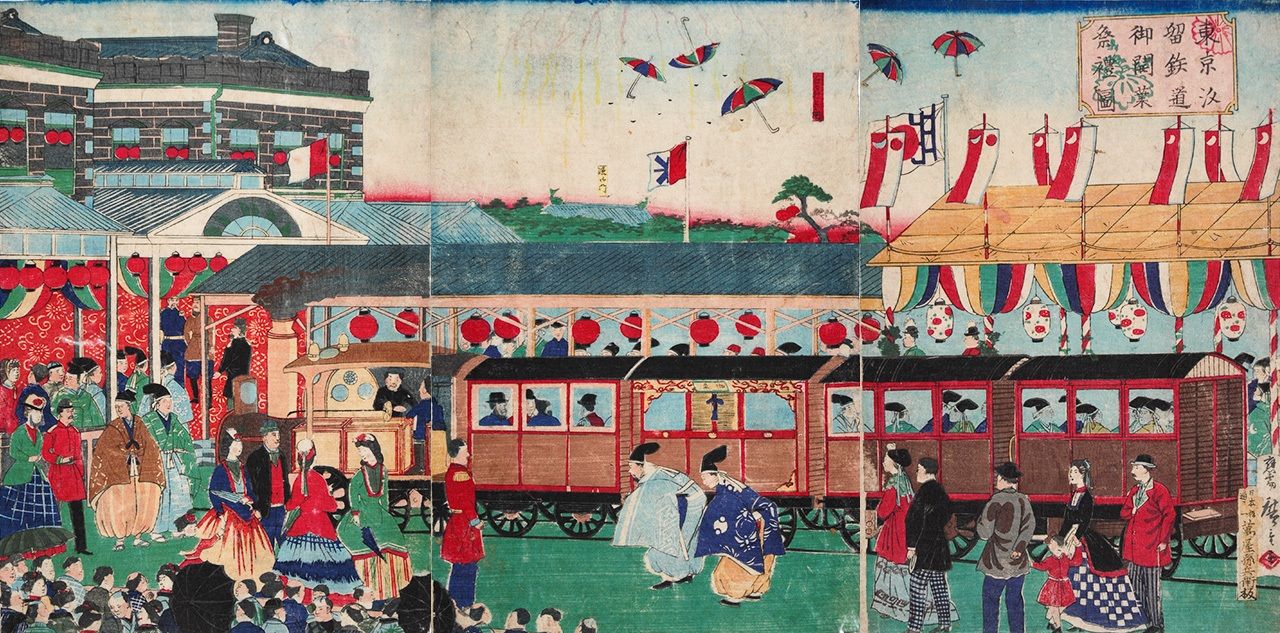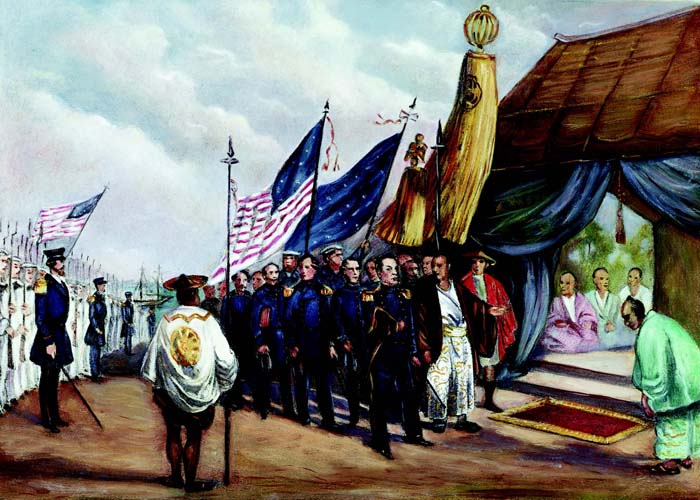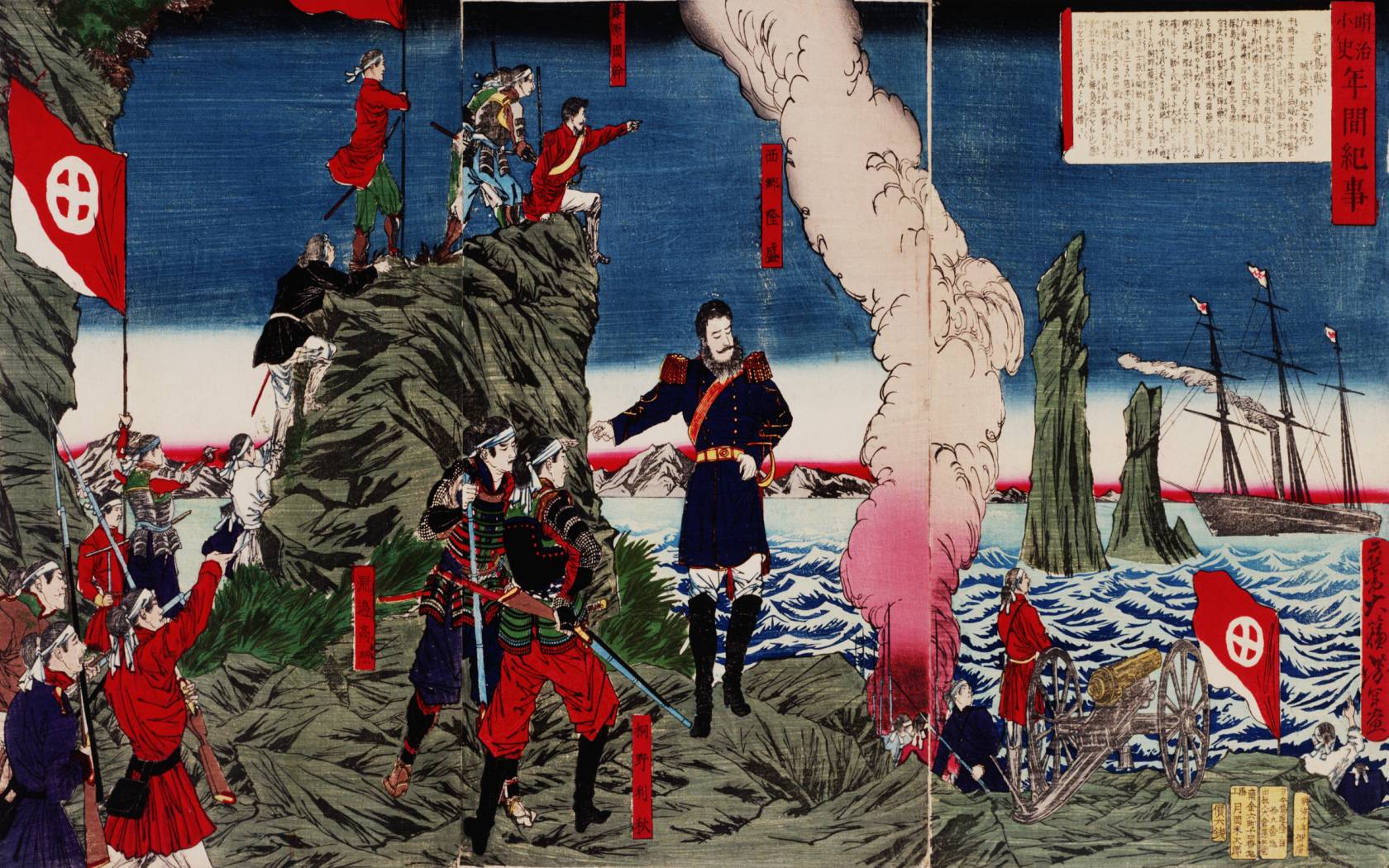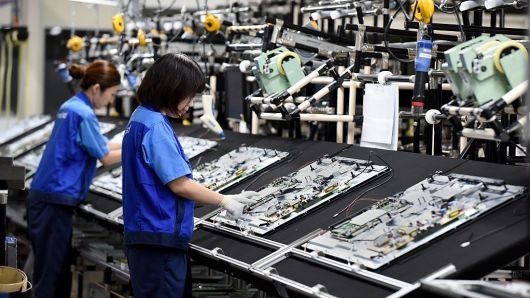The industrial revolution that swept across Europe and America in the 18th and 19th centuries is often considered the most significant event in human history since the Agricultural Revolution. It transformed the world from an agricultural to an industrial society and laid the foundations for modern economic growth. However, the industrial revolution in Japan was unique and involved certain factors that were markedly different from what the West had experienced. This article will examine these factors and discuss how they contributed to Japan’s “latecomer” industrial revolution.

Japan’s Industrial Revolution: A Late Bloomer
Japan’s industrial revolution came relatively late in comparison to the West. While the industrial revolution began in Britain in the late 18th century and spread to other parts of Europe and America in the 19th century, Japan’s industrialization began in the late 19th century, after the country had been forced to open up to foreign trade following its defeat in the First Sino-Japanese War (1894-1895) and the Russo-Japanese War (1904-1905). The Japanese government recognized the importance of industrialization in strengthening the country’s economy and military power and embarked on a policy of rapid modernization and industrialization, known as the Meiji Restoration.

Unlike the West, which had a long history of technological innovation and scientific discovery, Japan had been largely isolated from the rest of the world until the mid-19th century. The country had no significant industrial base and relied heavily on agriculture and handicrafts. However, the Meiji government was determined to catch up with the West and implemented a range of policies to promote industrialization.

Unique Factors Contributing to Japan’s Industrialization:
1. Confucianism and Samurai Culture:
One of the factors that contributed to Japan’s industrialization was the influence of Confucianism and Samurai culture. Confucianism emphasized the importance of education and hard work, and this attitude was ingrained in the Samurai culture. Samurai were trained to be disciplined and dedicated, and they were expected to work hard and show loyalty to their lords. This work ethic was a key factor in Japan’s industrialization, as workers were willing to put in long hours and work hard to achieve the country’s industrial goals.

2. Strong Government Involvement:
Another unique factor that contributed to Japan’s industrialization was the strong involvement of the government. The Meiji government implemented a range of policies to promote industrialization, including building infrastructure such as railways and ports, providing subsidies and tax breaks to encourage investment, and setting up state-owned industries. The government also invested heavily in education and research, establishing universities and research institutions to train scientists and engineers.

Emphasis on Technological Transfer:
Unlike the West, which relied on indigenous innovation, Japan’s industrialization was largely based on the transfer of technology from the West. The Meiji government sent students and scholars to study in Europe and America, and imported machinery and equipment to set up factories. Japanese engineers and technicians were also sent to the West to learn about the latest technologies and manufacturing methods. This emphasis on technological transfer enabled Japan to quickly acquire the skills and knowledge needed to build a modern industrial economy.

4. Unique Relationship between the Government and Private Sector:
Another factor that contributed to Japan’s industrialization was the unique relationship between the government and the private sector. Unlike in the West, where the government and the private sector were largely separate, the Japanese government actively encouraged the private sector to invest in industrial development. The government provided financial support, such as subsidies and tax breaks, to private companies, and also established a range of industry associations to promote cooperation between companies and encourage the sharing of knowledge and expertise.

Impact of Japan’s Industrial Revolution:
The impact of Japan’s industrial revolution was significant, both for Japan and for the world. It transformed Japan from an agrarian society into a modern industrial nation and set the stage for Japan’s emergence as a major economic power in the 20th century.
- Economic Growth
Japan’s industrial revolution led to rapid economic growth and the development of a modern industrial economy. The country became a major producer and exporter of manufactured goods, including textiles, steel, machinery, and electronics. This economic growth fueled Japan’s rise as a major economic power and allowed it to compete on a global scale.
- Military Expansion
Japan’s industrial revolution also had significant implications for its military expansion. The country’s rapid industrialization allowed it to modernize its military and build a powerful navy and army. Japan’s military expansion was a key factor in its emergence as a major power in Asia and its eventual involvement in World War II.
- Social and Cultural Changes
The industrial revolution also brought about significant social and cultural changes in Japan. The shift from an agrarian to an industrial society led to the growth of urban areas and the emergence of a new middle class. New social and cultural norms emerged, including a greater emphasis on education and individualism.
- Global Influence
Japan’s industrial revolution had a significant impact on the rest of the world as well. The country’s success in industrialization inspired other countries in Asia and beyond to follow a similar path. Japan’s technological advancements in fields such as electronics and automobiles also had a global impact, with Japanese companies such as Sony, Toyota, and Honda becoming household names around the world.
- Environmental Impact
However, rapid industrialization in Japan also had negative environmental consequences. The heavy use of natural resources and the rapid expansion of industrial infrastructure led to pollution and environmental degradation. The environmental impact of Japan’s industrial revolution is still felt today, and the country has since made efforts to reduce its carbon emissions and promote sustainable development.
Conclusion:
In conclusion, Japan’s “Latecomer” Industrial Revolution was a remarkable achievement that propelled the country from a feudal society to a modern industrial nation. The factors that drove Japan’s industrialization, including government-led economic policies, social and cultural changes, and unique geopolitical circumstances, were markedly different from the experience of the West. Japan’s industrial revolution had far-reaching impacts on its economy, military, society, and global community. It serves as a reminder that innovation and progress can emerge from unexpected places and circumstances, and that every nation has the potential to forge its own path toward development and prosperity.

